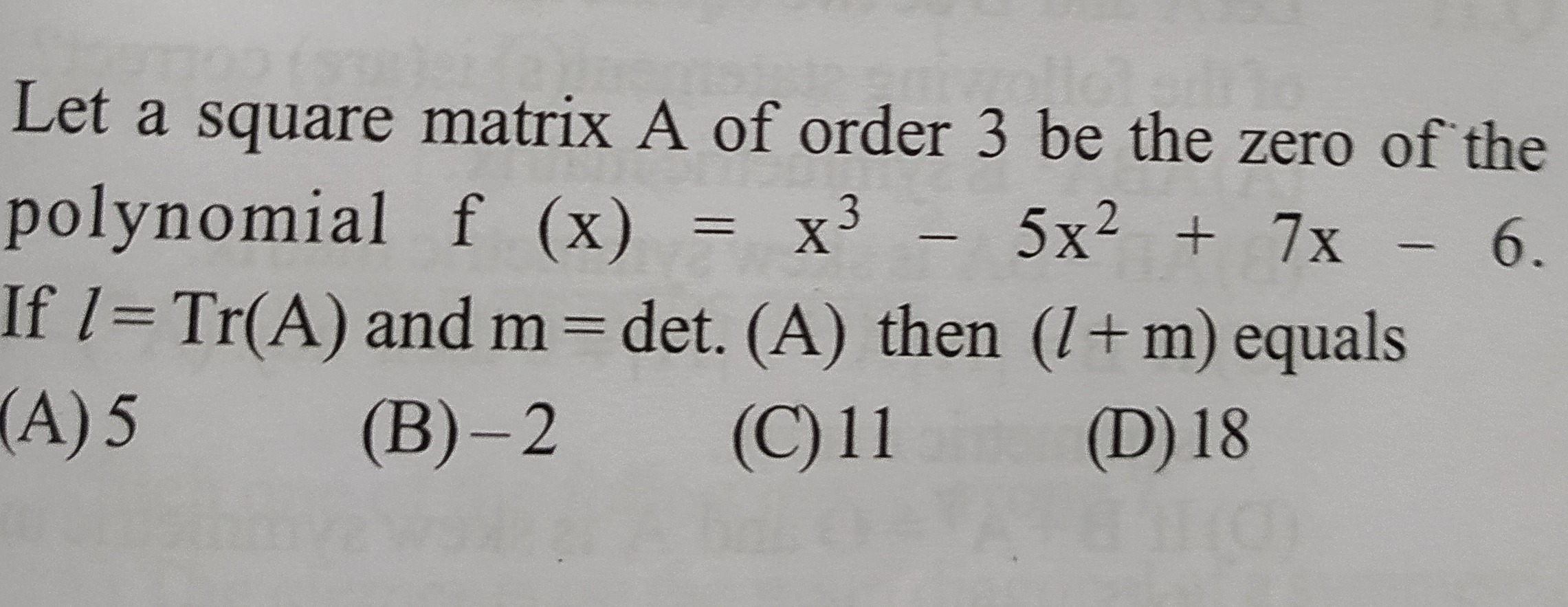Question
Question: Let a square matrix A of order 3 be the zero of the polynomial f (x) = x³ - 5x² + 7x - 6. If l = Tr(...
Let a square matrix A of order 3 be the zero of the polynomial f (x) = x³ - 5x² + 7x - 6. If l = Tr(A) and m = det. (A) then (l + m) equals

A
5
B
-2
C
11
D
18
Answer
11
Explanation
Solution
The matrix A satisfies the equation A3−5A2+7A−6I=0. By the Cayley-Hamilton theorem, a matrix satisfies its characteristic equation. For a 3x3 matrix A, the characteristic equation is λ3−Tr(A)λ2+(sum of principal minors of order 2)λ−det(A)=0. Comparing the given polynomial equation satisfied by A with the Cayley-Hamilton equation, we identify the coefficients. The coefficient of A2 gives −Tr(A)=−5, so Tr(A)=5. The constant term gives −det(A)I=−6I, so det(A)=6. Given l=Tr(A) and m=det(A), we have l=5 and m=6. Therefore, l+m=5+6=11.
